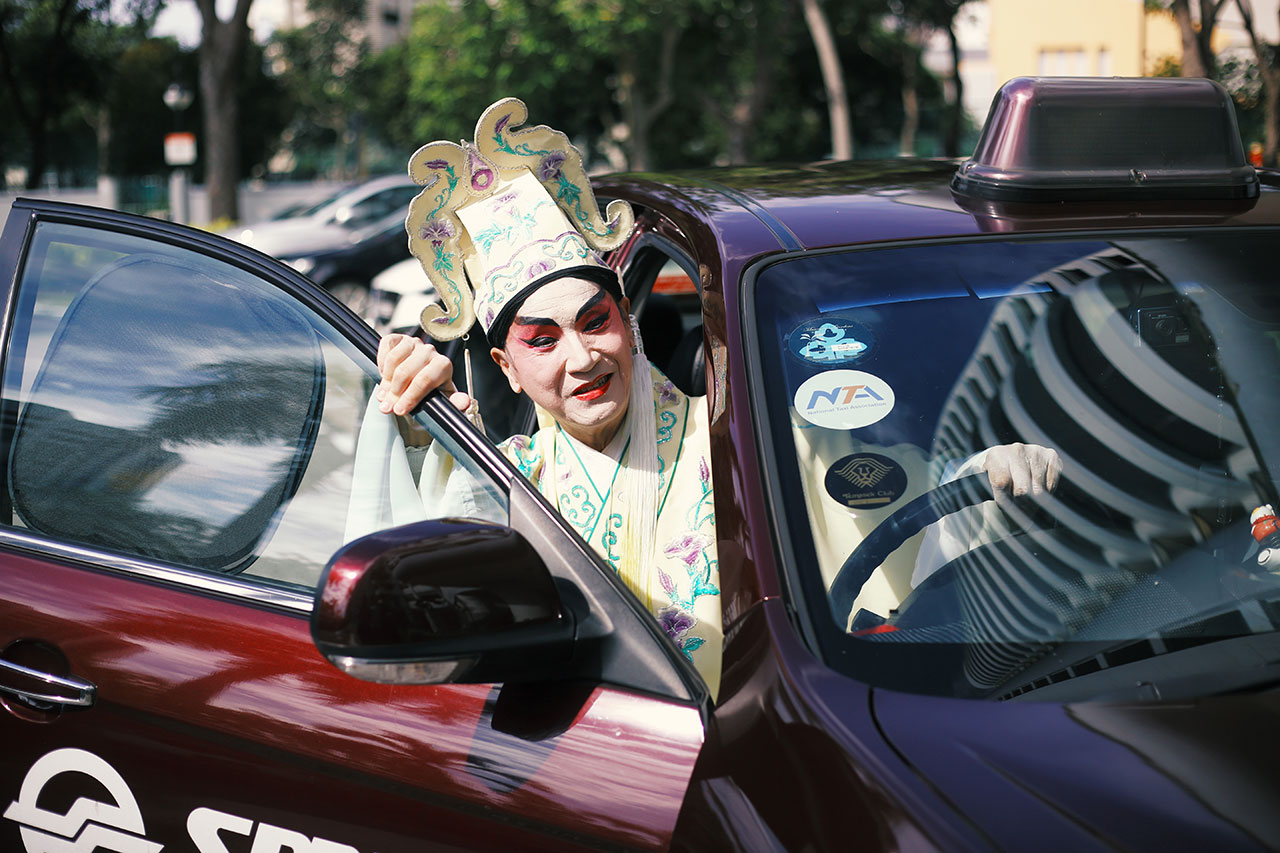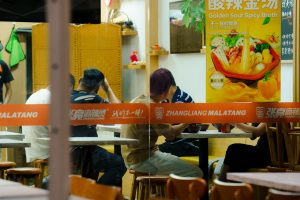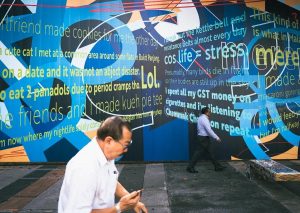“Of course I want to play an emperor,” Lawrence says as he puts on an elaborate yellow headdress.
It’s 3 PM on a Saturday afternoon, and instead of drinking coffee at LTN Siglap, I’m watching a 67 year-old man put on makeup in his apartment in Mandarin Garden.
I watch as lines of crow’s feet disappear under a blanket of mascara. A stack of folded Chinese hand-fans sit conspicuously next to a fresh packet of Nasi Lemak, both waiting to be opened. On the wall, a family portrait faces a framed photo of a man in costume.
“Why an emperor?”, I wonder to myself. But before I can ask Lawrence, he leans over and continues: “It’s the only role I have never played.”
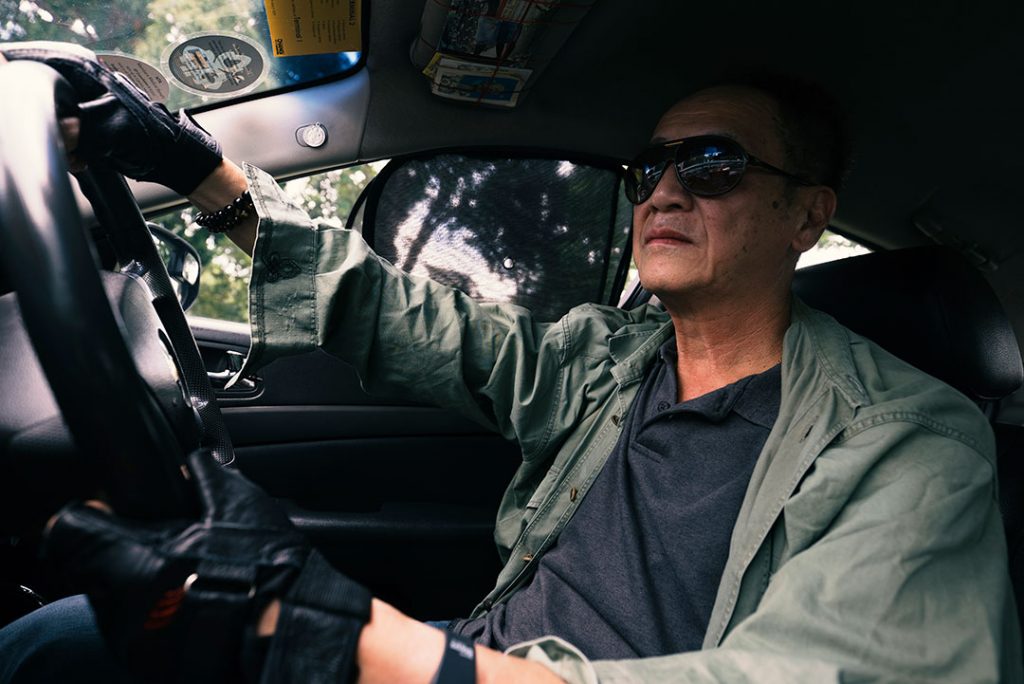
“It was a simple concept. Hotdogs and lemonade. Finding a good location was the most challenging and important aspect of the job. But as we expanded, we became careless in choosing our locations and the business suffered for it. I guess you could say I have fond yet bitter memories of those days,” he tells me.
California Lemon closed for good a few years ago. These days, Lawrence is in semi-retirement and drives a taxi for a living. In the mornings, he ferries his eldest daughter to work before plying his usual route between the CBD and Changi Airport. At night, he comes home to an early dinner with his wife and three kids.
When I ask him what he enjoys about driving a taxi, he doesn’t have much to say other than that it offers him a lot of flexibility and freedom. “It’s the perfect job for a retiree as it’s an O-M-O (one-man operation) and you don’t have to see your boss’s face,” he jokes.
While he seems content, he remains reserved when I ask about the other aspects of his life. He reminds me of every other semi-retired taxi driver that I’ve met. Except that he’s also an opera star.
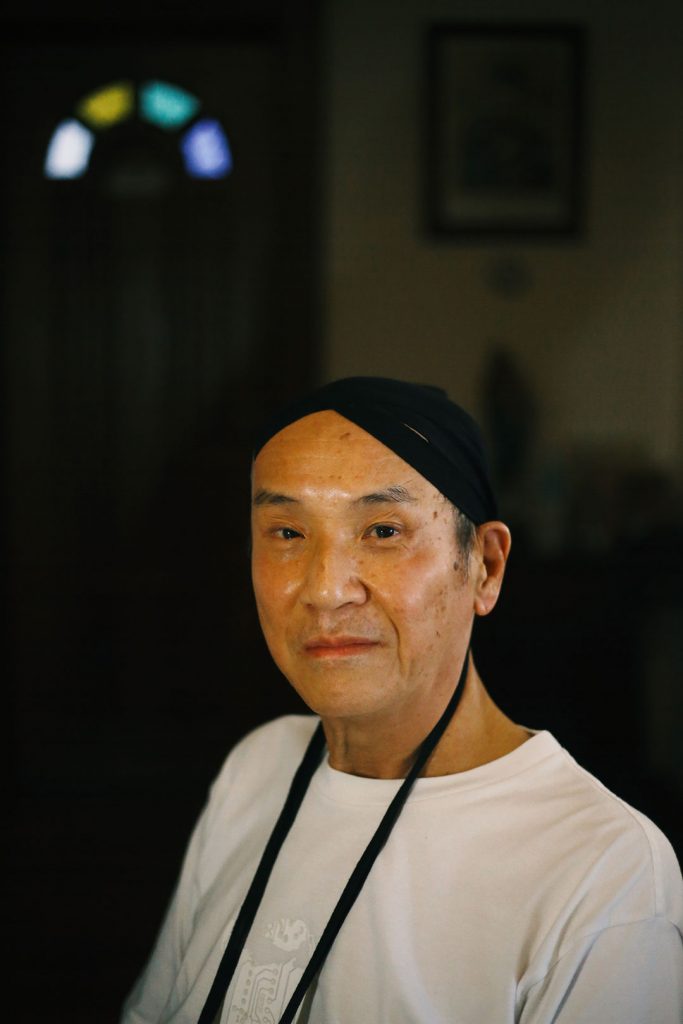
“I’ve been rehearsing every week for a show in July at the Singapore Chinese Cultural Centre. I can help you get tickets if you and your friends want to come,” he chirps.
I ask him to show me some of his moves, and he gamely belts out a few lines from an opera song, and prances about in a dance pattern.
“Does it look like I’m floating?” he asks.
Twirling his hands in the air, he moves with the grace of someone who was born for the stage. He tells me that he’s been practising opera for close to 17 years, and while he’s received formal training from instructors from China, he is mostly self-taught.
“I was introduced to Cantonese Opera by my nanny. She was a “ma jie” from Hong Kong who really loved watching these shows. So I’ve always had an interest in opera, although I only picked it up when I turned 50.”
Lawrence now performs with the Chinese Theatre Circle (CTC), an organisation that promotes and organises Cantonese Opera performances and events in Singapore. He is regularly cast in the lead role for famous Chinese plays such as Butterfly Lovers, and My Peony Pavilion.
“If you’re interested in opera, you can approach the CTC and they will teach you. There are also instructors that you can hire. But at the end of the day, the best way to learn is to perform.”
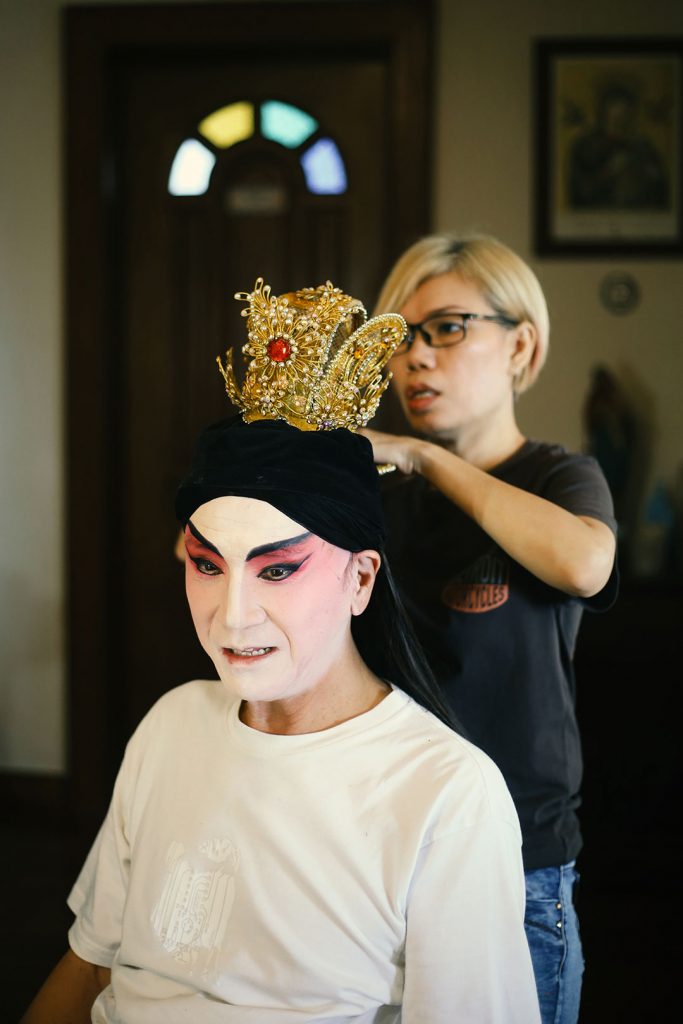
“I’ll never get bored, even if I retire,” he muses.
He’s obsessive, but in an endearing way.
When he shows me his opera wardrobe, I notice that every costume is painstakingly designed and tailored. Props and accessories are flown in from China as, according to him, “No one makes these things in Singapore anymore.”
When his makeup artist applies his makeup for our photoshoot, he fusses over every facial detail. He explains that he wears a cap on his head that is attached to and pulls on his forehead with scotch-tape—creating the impression of tighter skin, making him look “twenty years younger”.
When we talk about his opera accessories, he gives me a 15-minute tutorial on the “right way” to open a Chinese hand-fan. He also takes the time to describe the differences between the different shoes and headdresses that he keeps in his collection.
“This is an emperor headdress that I borrowed from my friend. If you are not an emperor, you cannot wear this,” he tells me.
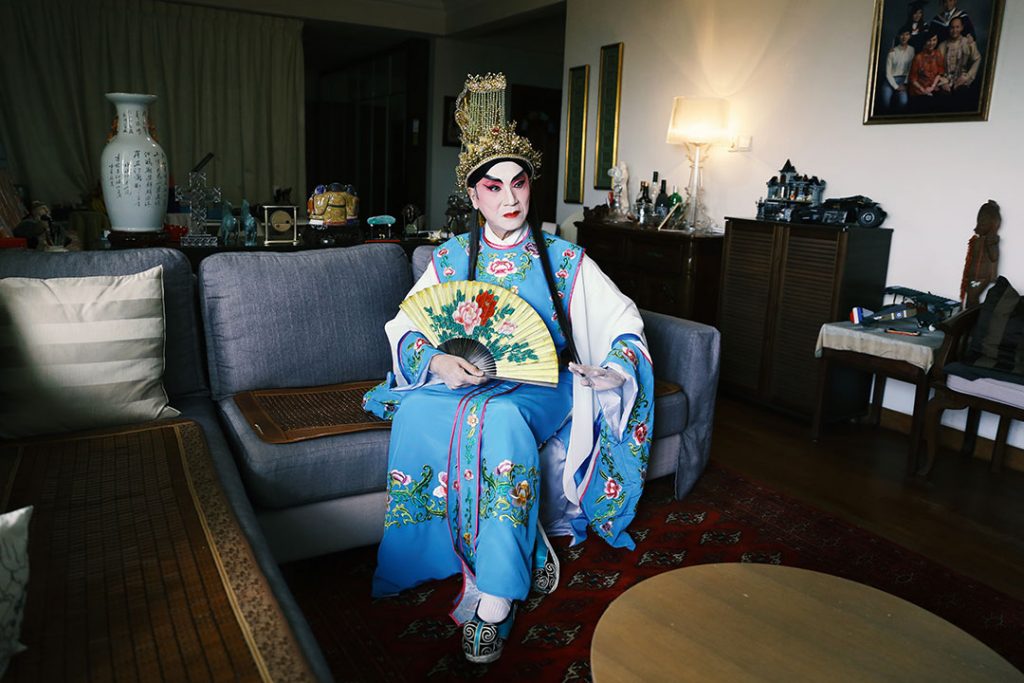
Having said that, I find it difficult to understand his passion for opera.
Like many 33 year-olds, I feel no connection with the artform. The last time I attended a performance was when I was 10 years old; I remembered staring blankly at the colourful characters on stage before falling asleep on my Grandmother’s lap.
Perhaps, as a Chinese man, I feel a moral obligation to learn more about my culture. At the same time, it feels foreign. I can hardly even speak the dialect.
When I ask Lawrence to “teach me to appreciate Cantonese Opera”, he explains that learning to appreciate opera is like learning to appreciate beauty.
“Opera is beauty. It’s a subtle art and there are different meanings for different hand actions and poses. For example, if I’m supposed to be ‘looking at a pretty girl’ on stage, the pose would be different as compared to when I’m supposed to be looking at a mountain or a country vista.”
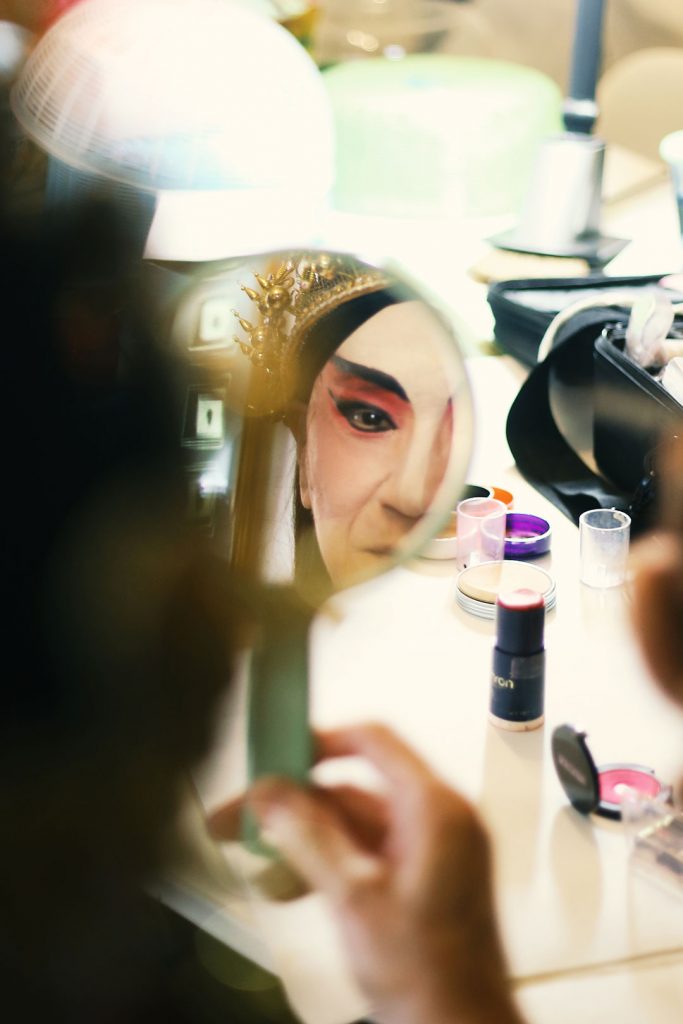
Unless you are attuned to the artform, it is not something that can be casually appreciated as it would take some amount of effort to understand its nuances, such as the meaning behind the different visual cues.
Like fine art, Cantonese Opera deserves an educated audience. Unfortunately, this audience is dwindling every year. Lawrence observes that he always sees the same people coming for his shows.
“Most of my friends come down to support me, but it’s the same crowd every year. I guess you could say that my friends have become my fans too,” he jokes.
He goes on to say that he has “no confidence that Cantonese Opera in Singapore will still be around in 30 years”.
“Nowadays young people can’t even speak dialect, how do you expect them to understand what is going in these shows?” he says.
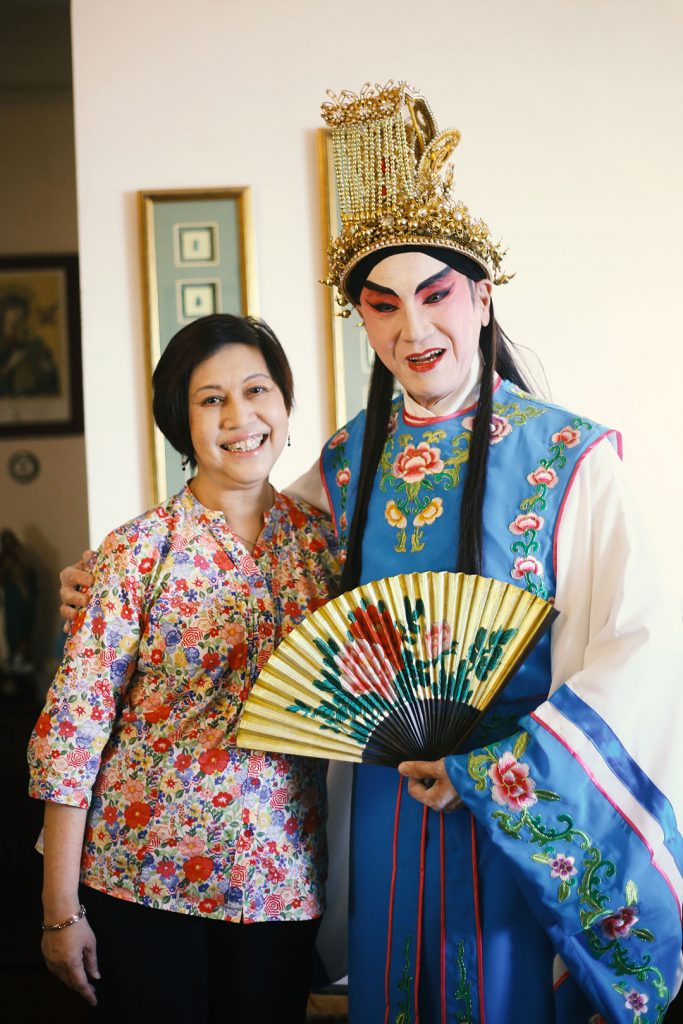
Lawrence’s youngest daughter, Melissa, shares that while it can be quite stressful for the family in the weeks leading up to a performance, she’s grown accustomed to it. Even though she can hardly sit through a full performance, she tells me that she attends her father’s performances to support him anyway.
Her elder sister, Amanda, shares similar sentiments, although she seems more receptive to her father’s hobby.
“I spend an hour in the car with him every morning when drives me to work, and we often talk about opera. I go to his shows to support him, and I would like to learn more but it’s quite hard to understand what they are singing about. It usually helps when there are subtitles,” she says.
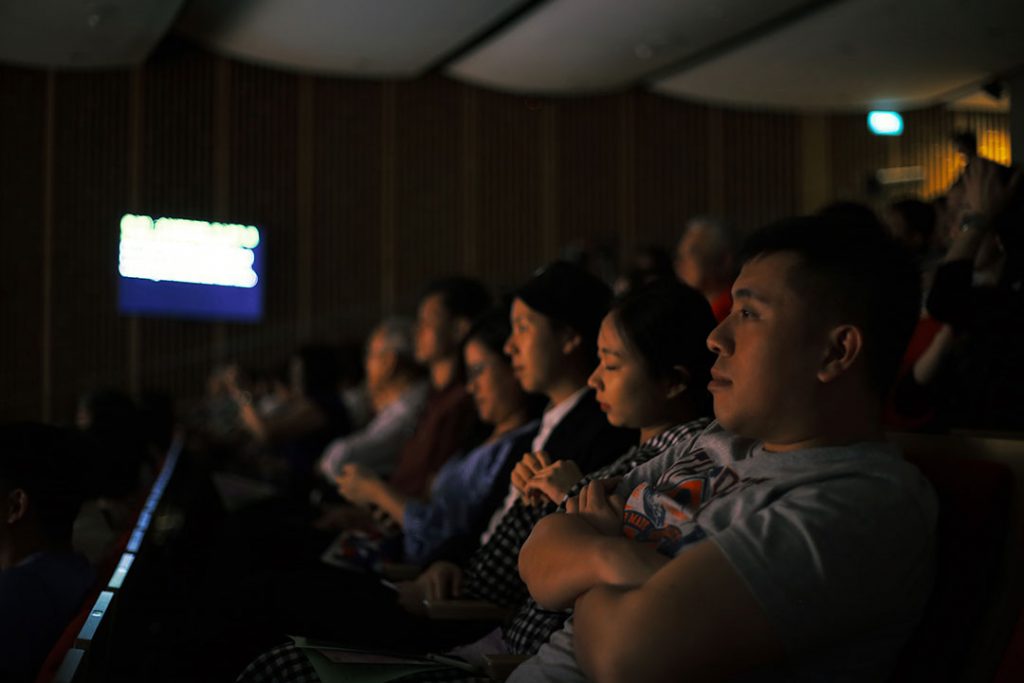
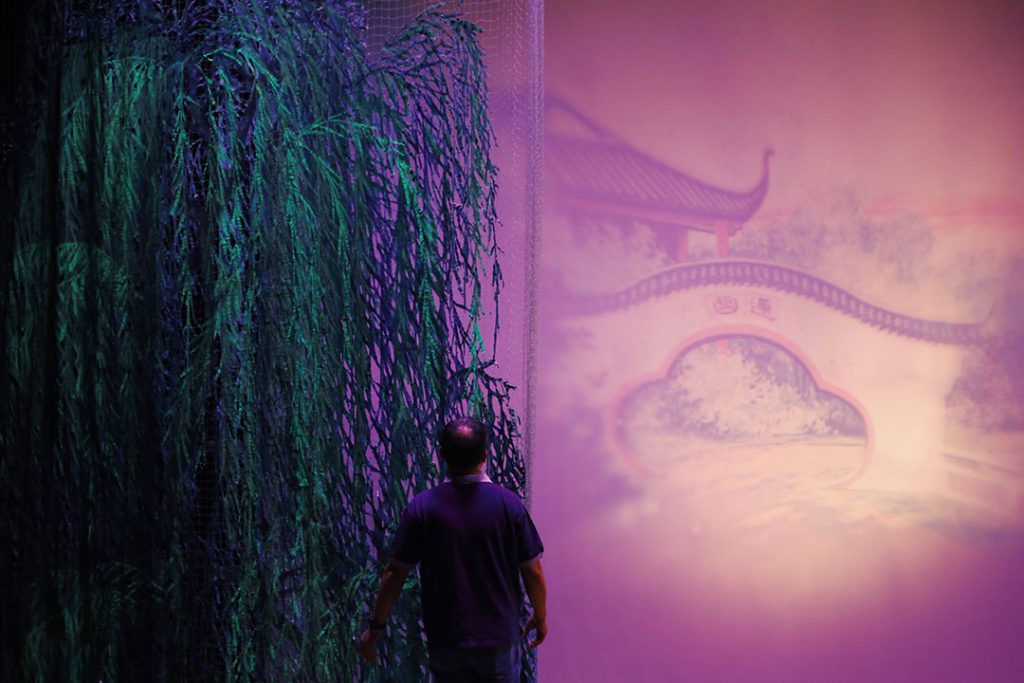
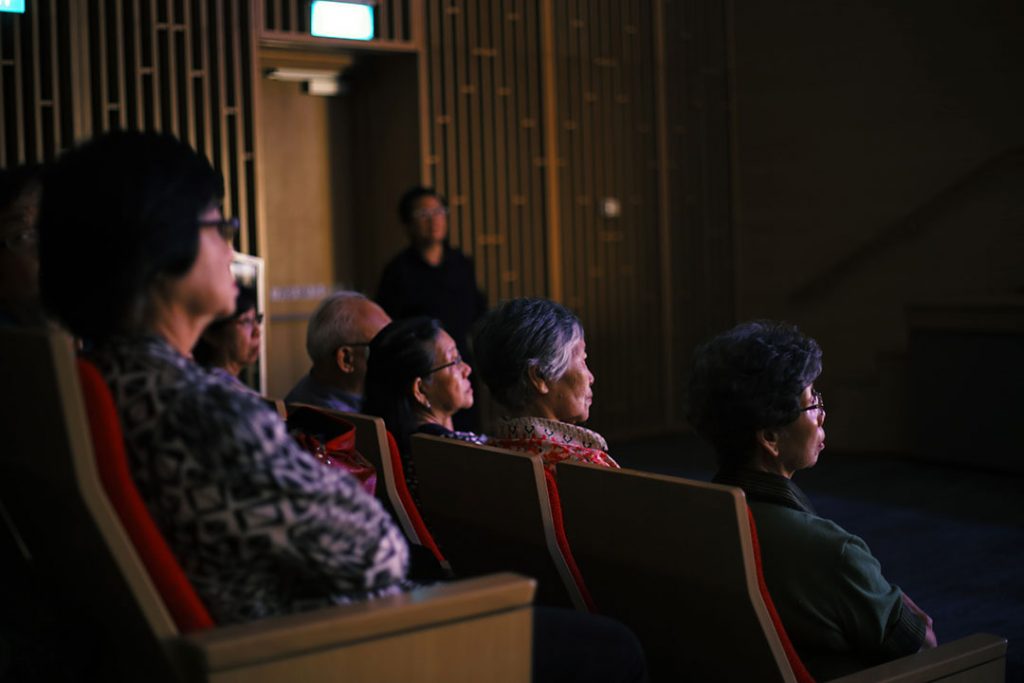
On the day of the show, I arrive early to catch a moment backstage with Lawrence and his co-star. A nervous energy hung in the room, with makeup artists and performers scurrying about finishing last minute preparations.
Lawrence, however, seemed calm. I asked if he ever feels nervous before a performance.
“I’m only nervous if I don’t prepare. But I always prepare. Now I’m just excited to perform,” he said.
After his makeup was done, he asked yet again: “Do I look twenty years younger? Do I look young? Do I look like Mel’s brother?”
I wonder if this is what it’s all about. Like other forms of acting, you, for a moment, become someone else. In Lawrence’s case, perhaps opera allows him to both be and feel younger.
I notice at this point that Lawrence’s co-star has just finished putting on her makeup. I don’t know her age, but she seemed to be in her late 50s. I ask her if she too felt younger, and offer to take her photograph. She declines, and tells me that opera is a “secret life” that she would like to keep as such.
I can’t help thinking that Lawrence too leads a double identity. Taxi driver by day, opera singer by night. Except for him, this is no secret.
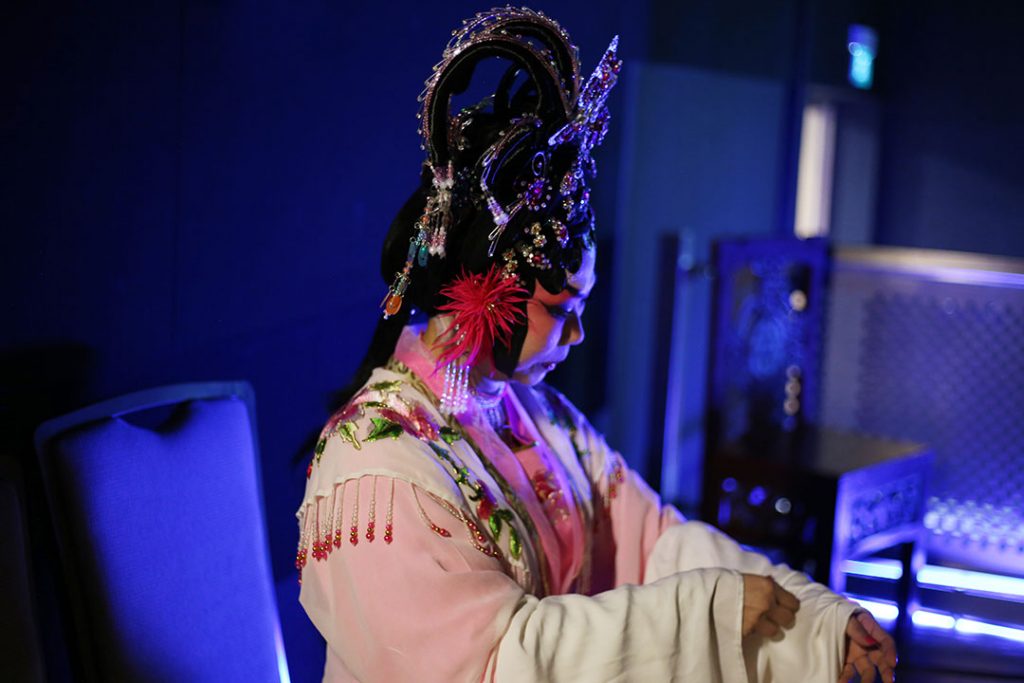
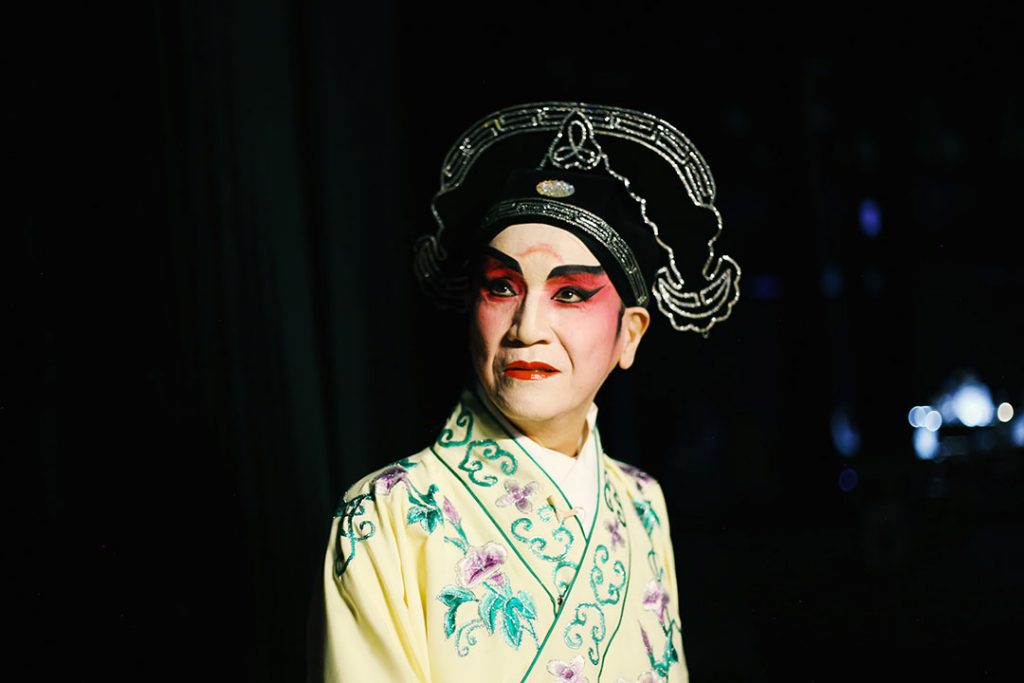
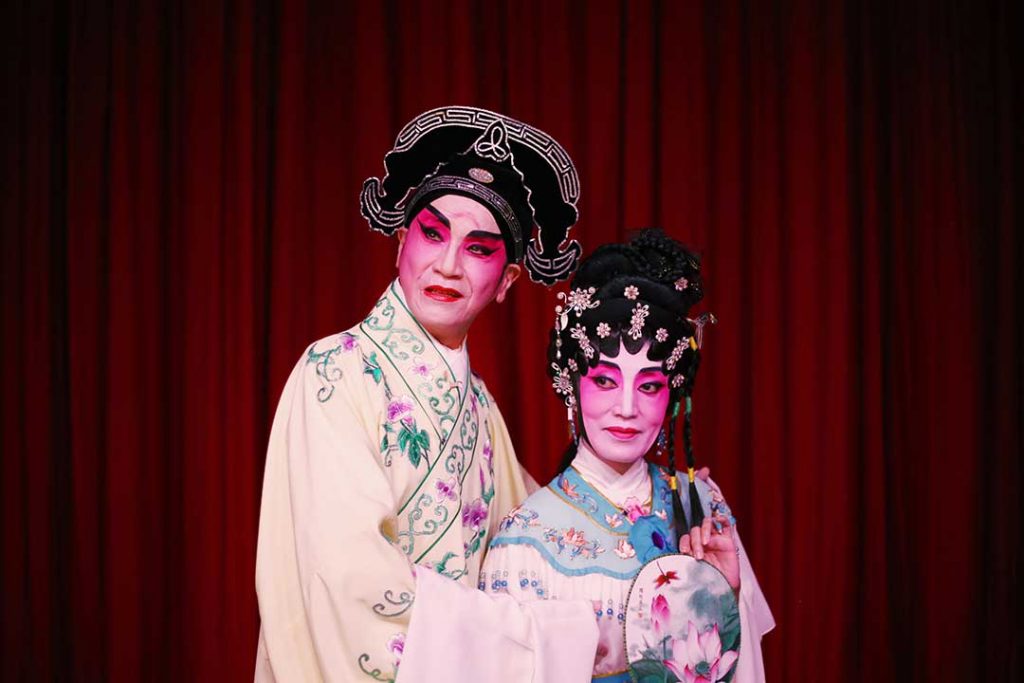
From behind the curtain, I observe the audience and realise that Lawrence’s children were the only young adults in attendance. Everyone else appears to be over 60.
One of Lawrence’s friends makes his way backstage and asks for my help to take a photo of them together.
“He’s one of my biggest supporters,” Lawrence tells me with a smile.
As we wait in the darkness, Lawrence points at his costume and asks, “So, do I look transformed?”
I reply in the affirmative, wondering whether the question was rhetorical, or whether it was supposed to mean something else. After all, what did I know about opera costumes?
A second later, the smoke machine activates, the music starts, and Lawrence floats out onto the stage. Watching from behind, I don’t see a taxi driver, but a man renewed with youth and vigour.

